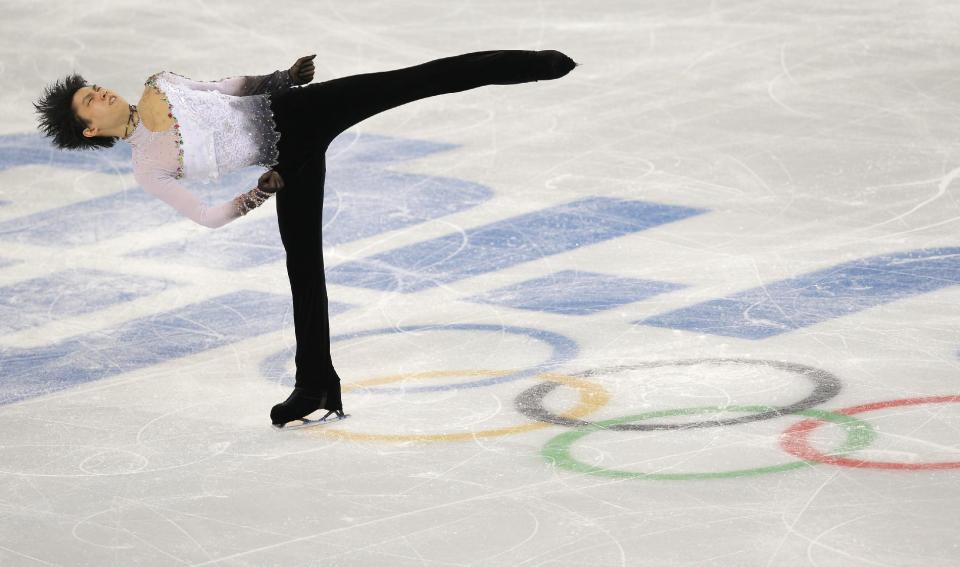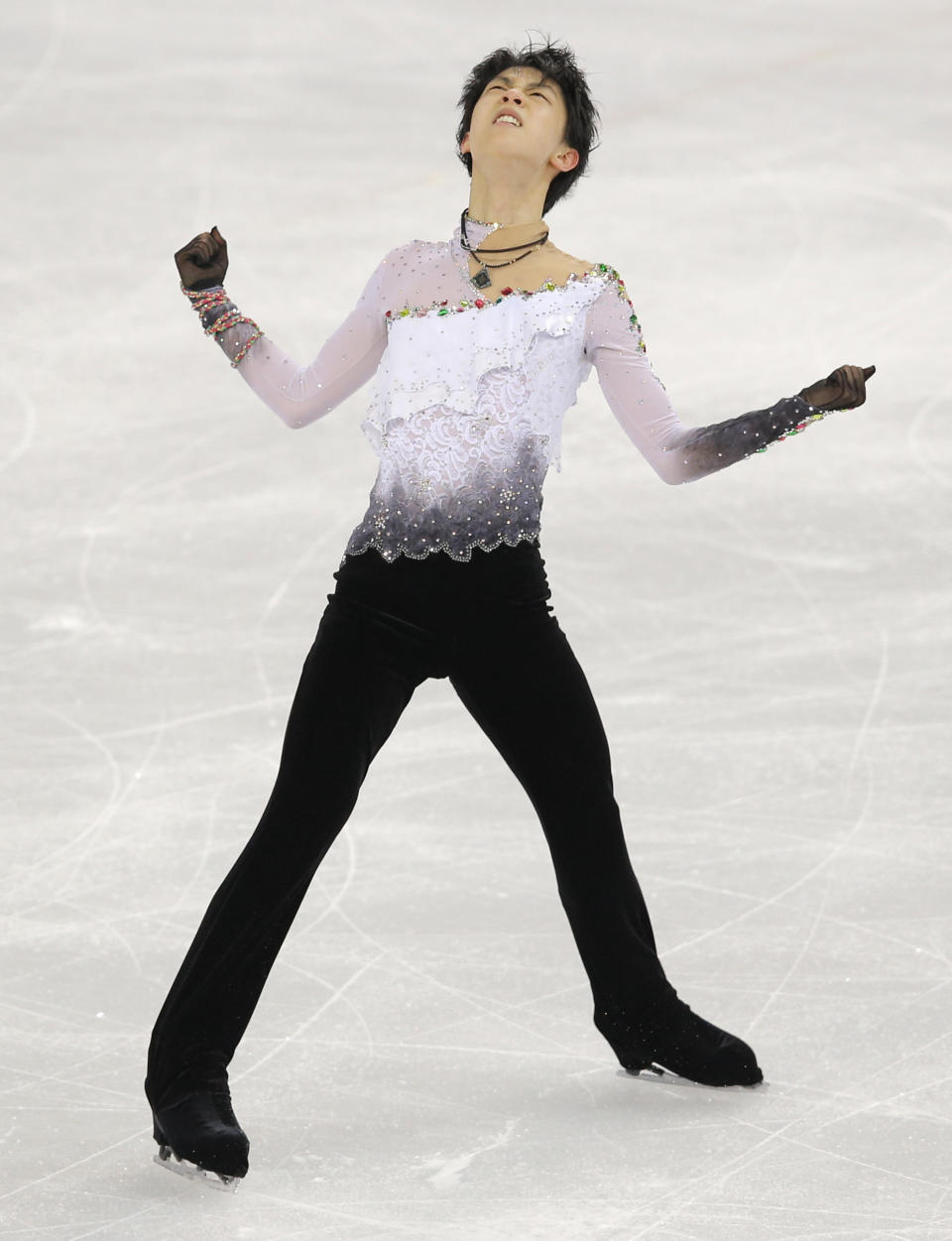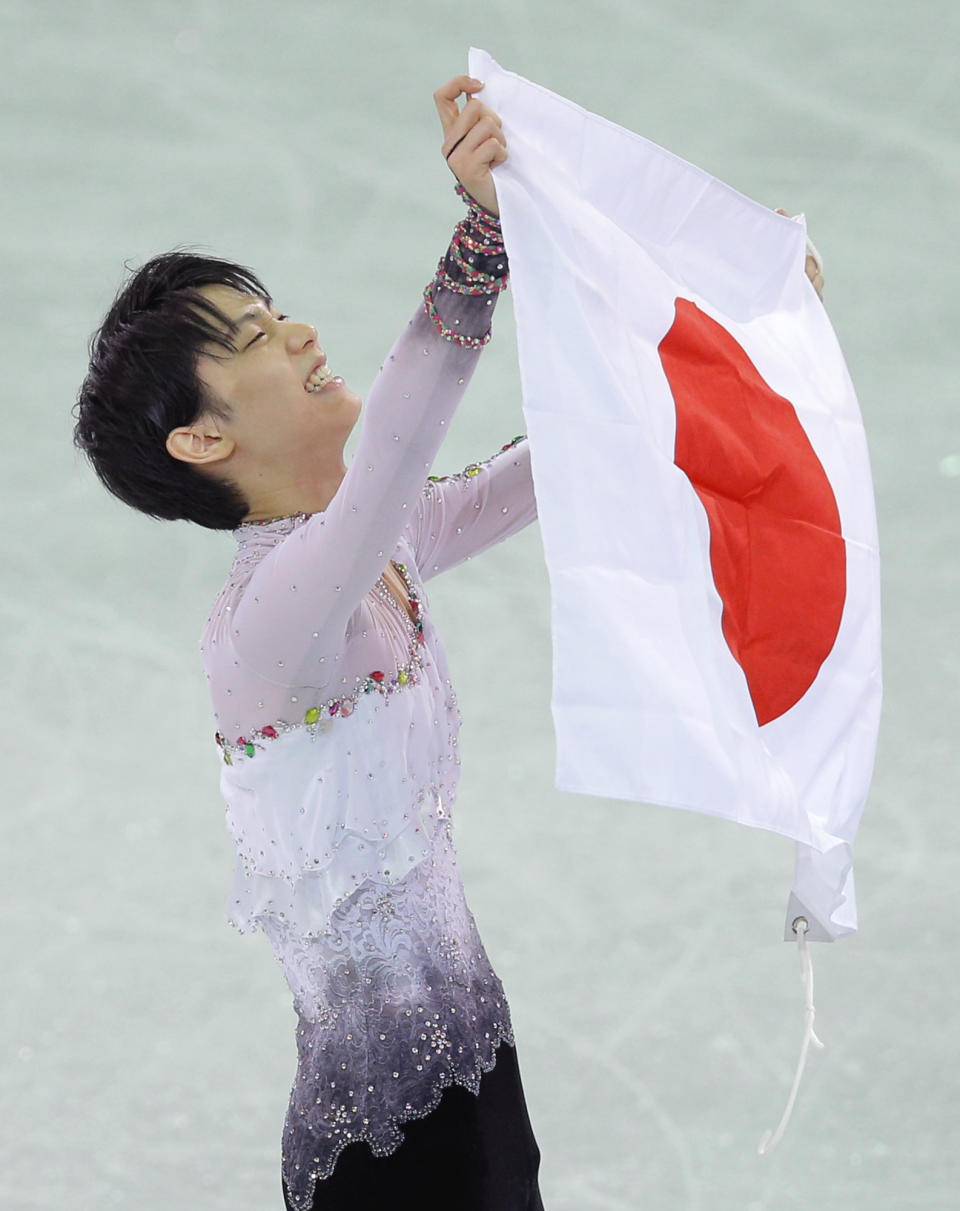Japanese teen Hanyu wins Olympic gold, wants more
SOCHI, Russia (AP) — Yuzuru Hanyu and Brian Orser were walking together along the Black Sea just over a year ago, a skater and a coach still getting to know each other.
"He just blurted it out: 'I want to win the Olympics. And I want to win the next Olympics,'" Orser recalled Friday, back in Sochi with Hanyu.
The first goal is accomplished. Easy to imagine him achieving the second after the Japanese teen captured the gold medal despite skating far from his best.
It was at the Grand Prix Final in Sochi in late 2012, about six months into their partnership, that Hanyu made the pronouncement that he was going for gold in 2014 and 2018. Hanyu's reaction to winning after falling twice in his free skate Friday illustrated why his coach is confident he will maintain his drive for four more years.
Hugging his pupil as the result was about to become final, Orser asked if Hanyu was happy.
"I'm not happy," the 19-year-old replied, though the words were accompanied by a smile.
"I knew he was going to say that," Orser said, a bit proudly.
"It is going to sink in," he told Hanyu. "This is history. All right? This is a short and a long. This is two programs, OK?"
History, indeed. Hanyu became the first Asian man to win an Olympic figure skating gold medal in men's singles. And he did it because of a record-setting short program that captured his brilliance.
Dick Button was the only male figure skater in the modern era to successfully defend his Olympic title, winning in 1948 and '52.
Orser believes there will be many more performances like Thursday's because Hanyu carries himself in such a professional manner. He's surrounded by the right people and is no longer the "loose cannon" who first started working with the coach in Toronto, Orser said.
His title will make him a role model back home in Japan, and he takes that responsibility with a seriousness beyond his years. Hanyu was practicing in Sendai when the earthquake and tsunami hit in 2011. He evacuated the arena with his skates still on, fearing the building couldn't withstand the 9.0-magnitude quake.
Hanyu considered quitting figure skating. But donations poured in from across the country and around the world to allow him to keep training — including from Shizuka Arakawa, the 2006 Olympic women's figure skating gold medalist from Japan.
On Friday, Hanyu resisted any trite declarations that his triumph will lift up the people still hurting in his hometown.
"This medal can't help the recovery in the region," he said. "I feel helpless here. I still feel like I'm not making a contribution."
But now he has the platform to change that.
"As an Olympic gold medalist," Hanyu said, "I think this can help as a starting point of what perhaps I can do."








